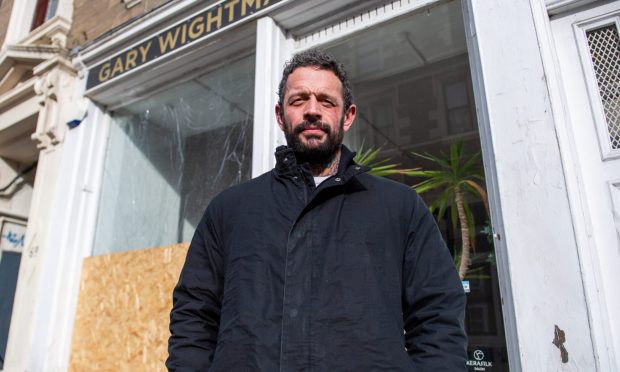A Dundee woman with MS is on a mission to raise awareness of the disease after speaking of the terrifying moment she was rushed to A&E with numb limbs.
Katy Wood, a 24-year-old video games artist, is shedding light on the need for new treatments for multiple sclerosis (MS) as part of a £100 million charity appeal.
Katy was given a shock diagnosis of relapsing MS in 2018 while studying for her degree in third year.
She said: “When I was first diagnosed, I had been working really hard at uni and I was super stressed out doing group projects.
“I was up really late, getting up really early and my legs were going numb but I thought it was just from working so hard and stress.
“I ignored it for a little bit but it got to the point where it was really bad and I couldn’t walk properly or go to the bathroom.
“At that point I contacted my girlfriend’s cousin who is a nurse and she said I had to go to A&E.”
Katy spent 10 days in hospital undergoing tests but says she was diagnosed “pretty quickly” a month or two later.
She hopes to contribute to the MS Society’s Stop MS Appeal – which needs to raise £100 million to find new treatments.
It has already secured over £54 million.
The former Abertay University student, who now makes 3D models for computer games, said: “It was super scary. I didn’t expect it at all.
“When you’re at uni, you kind of feel like you’re invincible.
“You’re working really hard and it’s all going to be worth it in the end for your degree but you get tripped up with something like that. It was devastating and a lot to take in.”
Dream of future MS treatments
Katy, originally from Stonehaven in Aberdeenshire, added: “I really hope that there are more effective treatments in the future because it is quite scary to think that what you have could progress and become so much more severe.
“It would be life changing for me, and for anyone, to know that MS couldn’t progress anymore.
“It would be a huge relief both mentally and physically to know that there is something that would stop something that, at the moment, can’t be stopped.”
MS, an unpredictable condition which is different for everyone, first affects people in their 20s and 30s.
The NHS say common symptoms include tiredness, vision problems and problems with walking or balance.
Morna Simpkins, MS Society Scotland director, said: “There are now over a dozen licensed treatments for people with the relapsing form of MS, and some emerging for early active progressive MS – but there is nothing to stop you becoming more disabled as your condition advances.
“Thankfully, we have never been closer to stopping MS, and with the discoveries being made right now, we believe treatments that slow or stop disability progression are a very real prospect.”











